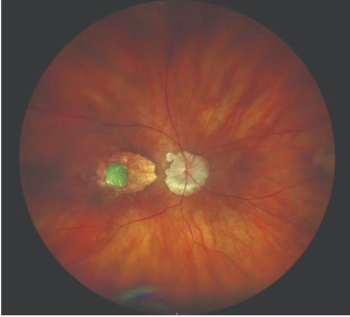
EURETINA 2024: Alexandra Miere, MD, PhD, sees oculomics rising to the top
Alexandra Miere, MD, PhD, says oculomics is the next big thing in eye care.
At this year's EURETINA congress, Alexandra Miere, MD, PhD, an editorial advisory board member for Ophthalmology Times Europe, stopped by the booth to talk about her conference experience. In this video, she discusses the rise of oculomics, her presenation on BLIP (Benign Lobular INL Proliferation), artificial intelligence (AI) applications in inherited retinal diseases, and more.
Editor's note: The below transcript has been lightly edited for clarity.
Alexandra Miere, MD, PhD: Hi, I'm Alexandra Miere. I am an Associate Professor of Ophthalmology at the University Paris Est Créteil. I'm a retina specialist with a focus on retinal imaging and AI applications.
So, at EURETINA this year, I had the pleasure of talking about BLIP. BLIP is a new entity that stands for Benign Lobular Inner Nuclear Layer Proliferation. It's a benign tumour that has a very unique aspect in OCT and FAS.
And then, I talked about the OCT and angiography changes after hemodialysis in end stage kidney disease. So as you all know, oculomics is a field that is getting more and more traction. There is more and more emphasis on what the eye can tell us of systemic disease. And this small study that we formed in [University Paris Est Créteil] last year is part of this new trend in oculomics, I think.
I spoke about AI applications in inherited retinal diseases. Inherited retinal diseases are very rare diseases that are quite difficult to diagnose. And using AI, most particularly deep learning algorithms, we are able, using fundus autofluorescence, for example, or OCT, to detect very nicely the more frequent retinal diseases. This will probably change the paradigm, get the patients to have a referral more rapidly, and when we will have available treatment, we will also allow more rapid access to those new treatments.
This year, there were many, many sessions. I particularly enjoyed the sessions on AI that I’ve already seen. The one on oculomics was very interesting, but it's a topic that I'm particularly interested in, I think. And then there were some very interesting sessions on geographic atrophy and on the OCT and OCT-A applications in various retinal diseases yesterday. There were many, many presentations I really enjoyed.
Newsletter
Keep your retina practice on the forefront—subscribe for expert analysis and emerging trends in retinal disease management.












































